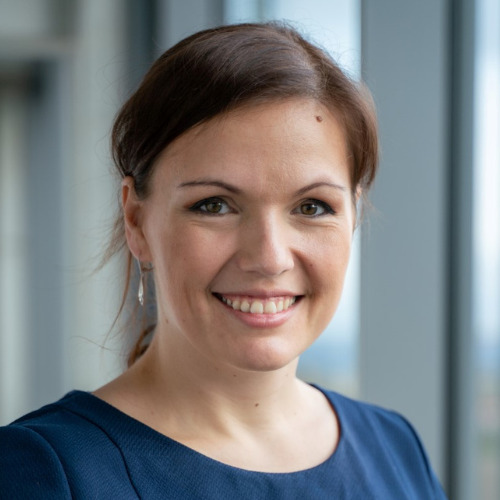MA-INF 4115: INTRODUCTION TO NATURAL LANGUAGE PROCESSING
Winter Semester 2025 – 2026
Content:
What is the Introduction to NLP course about?
This course provides a technical perspective on NLP - methods for building computer software that understands and manipulates human language. Contemporary data-driven approaches are emphasized, focusing on machine learning techniques. The covered applications vary in complexity, including for example Entity Recognition, Argument Mining, or Emotion Analysis.
Through lectures, exercises, and a final project, you will gain a thorough introduction to cutting-edge research in NLP, from the linguistic basis of computational language methods to recent advances in deep learning and large language models.
Recommended participation requirements:
- Basic programming knowledge in Python and Machine Learning
- Basics of Machine Learning
- Basic knowledge of Python Libraries for ML (NumPy, Scikit-Learn, Pandas)
- Basics of Probability, Linear Algebra and Statistics
Logistics:
- Lectures: are on Thursday 10:15 AM - 11:45 AM in B-IT-Max 0.109 (Friedrich-Hirzebruch-Allee 6). ZOOM LINK
- Exercises: are on Wednesday in B-IT-Max 0.109. You can choose one of the following exercise groups to attend. ZOOM LINK
- Group 1: 2:15 PM - 3:45 PM
- Group 2: 4:15 PM - 5:45 PM
- Course Materials: will be uploaded every week on eCampus.
- Contact: Students should ask all course-related questions in our forum discussion on eCampus.
- Office Hours: Please reach out to us first via mail to arrange any in-person meeting.
- Prof. Dr. Lucie Flek: Friedrich-Hirzebruch-Allee 6 (B-IT) – Room: 2.123
- David Kaczér: Friedrich-Hirzebruch-Allee 6 (B-IT) – Room: 2.120
NEWS / UPDATES:
- 09.10.2025: The first exercise starts on Wednesday, 29.10.2025 at 2:15 PM / 29.10.2025 at 4:15 PM
- 09.10.2025: The first lecture starts on Thursday, 30.10.2025 at 10:15 AM
- 22.10.2025: Lecture (Thursdays) - b-it MAX 0.109 (b-it, Friedrich-Hirzebruch-Allee 6/8, Bonn)
- 22.10.2025: Exercise (Wednesdays) - 2:15 PM room 2.113; 4:15 PM room 0.109 (b-it, Friedrich-Hirzebruch-Allee 6/8, Bonn)
Instructors:
Coursework:
Assignments (Prerequisite for the exam):
Will be uploaded on eCampus.
- Credits:
- Assignment 1 (25%): Word Operations & Text Classification
- Assignment 2 (20%): Word Vectors
- Assignment 3 (35%): RNN & Fine-tuning with LLMs
- Assignment 4 (20%): Result Analysis
- Deadlines: All assignments are due on Tuesday before the exercise class at 11:59 PM. All deadlines are listed in the schedule.
- Submission: Assignments should be submitted via eCampus. Further instructions are given in each assignment file. Please do not email us your assignments.
- Collaboration: Working on assignments in a group of 2 students is allowed. please name your file with both student names. File name: <FirstName_LastName>
- Grade/ Feedback: You will receive your graded assignment every week on eCampus.
**NOTE:** You need to achieve at least 50% of the points to be allowed to take the exam.
Final Project (40%):
- Project Topic: Students choose a subtask from one of the SemEval 2026shared tasks. We will also offer a list of topics related to our research, and teams may propose their own topic after consulting with the tutor.
- Project components:
- Problem Formulation (PF) (10%)
- Problem Solving (PS) (15%)
- Project Poster (PP) (5%):
- [Guideline for Poster]
- Project Report (PR) (10%):
- [Guideline for Final Report]
- Submission: You submit each project component on eCampus in the following format:
- PF: A PDF file with this name: Team_<Team number>.pdf
- PP: A PDF file with this name: Team_<Team number>.pdf
- PS + PR: A ZIP file containing all the necessary files with this name: Team_<Team number>.zip
- Deadlines: TBA (All deadlines for PF, PP, and PS + PR are listed in the schedule.)
- Mentors: Every team has a mentor, who gives feedback and advice during the project.
- Computing resources:
- CS Faculty: You can add your Student ID to this list.GSG will provide you with additional computing resources on behalf of the CAISA lab.
- Saturn Cloud: You can use 150 hours a month free of 64GB RAM and GPU instances. Check this out.
- Google Colaboratory: Colab is a hosted Jupyter Notebook service that provides free access to computing resources, including GPUs and TPUs. Check this out.
- Hugging Face Pro Subscription: Upload unlimited models. Check this out.
- Using external resources: You can use any machine learning or deep learning framework you like (Scikit-learn, PyTorch, TensorFlow, etc.). You may use any existing code, libraries, etc., and consult papers, books, online references, etc. for your project. However, you must cite your sources in your final project report.
- Team:
- Team size: Students should do final projects in teams of 3 up to 5 people. Larger teams are expected to do correspondingly larger projects.
- Building a team: You can either find your teammates on your own or ask us to find teammates for you. You may join the CS Master Bonn Discord Server.
- Submission:
- Please send us the list of your team members via itnlp.uni.bonn(at)gmail.com in the following format:
Subject: ITNLP - WS2024 - <Matr. Nr.>
Team Speaker: <Name>, <Matr. Nr.>, <Mail Addr.>
Team Members: <Name>, <Matr. Nr.>, <Mail Addr.>
<Name>, <Matr. Nr.>, <Mail Addr.>
- In case, you need a teammate, please mail us at itnlp.uni.bonn(at)gmail.com.
Subject: ITNLP - WS2024 - Looking for a team
<Name>, <Matr. Nr.>, <Mail Addr.>
- Please send us the list of your team members via itnlp.uni.bonn(at)gmail.com in the following format:
- Deadline: TBA (is listed in the schedule).
- Contribution: In the final report we ask for a statement of what each team member contributed to the project. Team members will typically get the same grade, but we may differentiate in extreme cases of unequal contribution. You can contact us in confidence in the event of unequal contribution.
Exam (60%):
- Exam dates:
- 1st sitting: Thu. 26 Feb. 2026, 12:00–14:00
- 2nd sitting: Thu. 12 Mar. 2026, 12:00–14:00
- Allowed material: Calculator is permitted.
Allocation:
- 3 + 1 SWS
- Master in Media Informatics: 6 ECTS credits
- Master in Computer Science: MA-INF 4115 6 CP
- Students must register for the exam on POS/BASIS.
Literature:
- J. Eisenstein: Introduction to Natural Language Processing
- Jurafsky, Daniel, and James H. Martin. "Speech and Language Processing: An Introduction to Natural Language Processing, Computational Linguistics, and Speech Recognition."
- S. Bird, E. Klein, E. Loper; Natural Language Processing with Python


